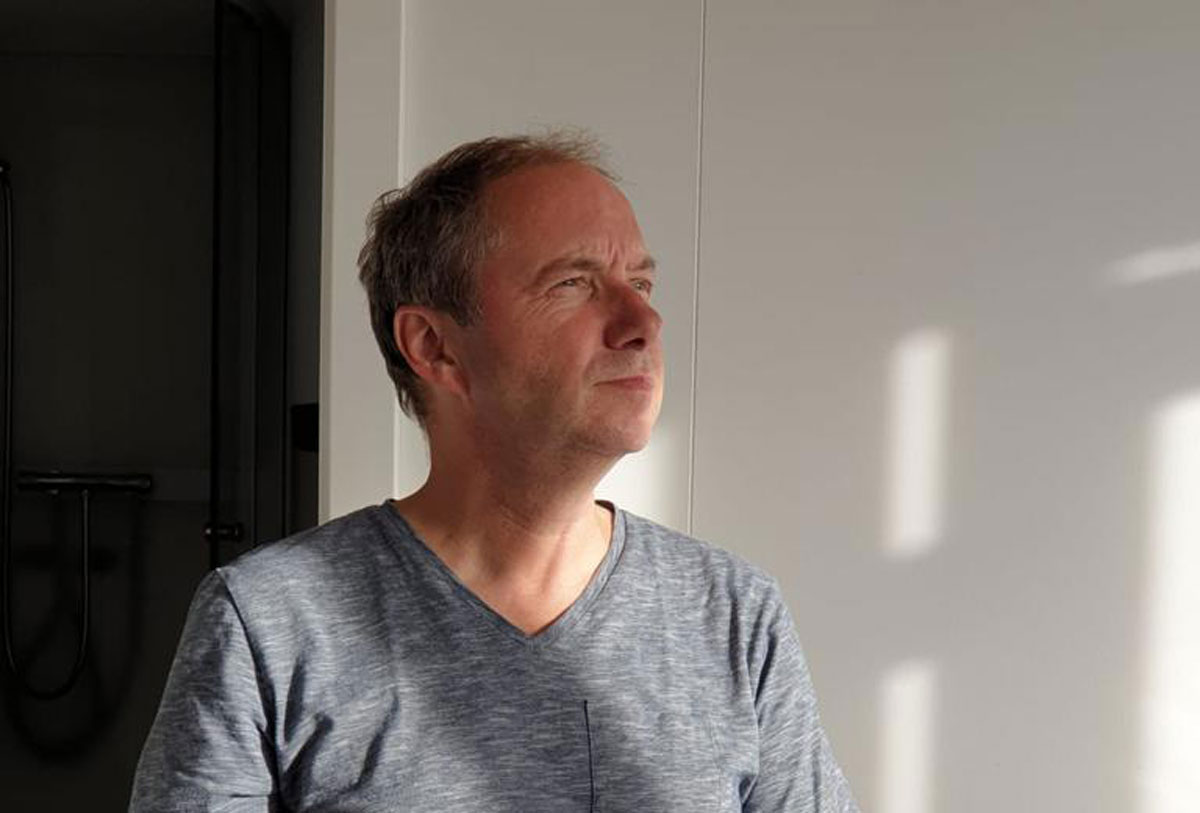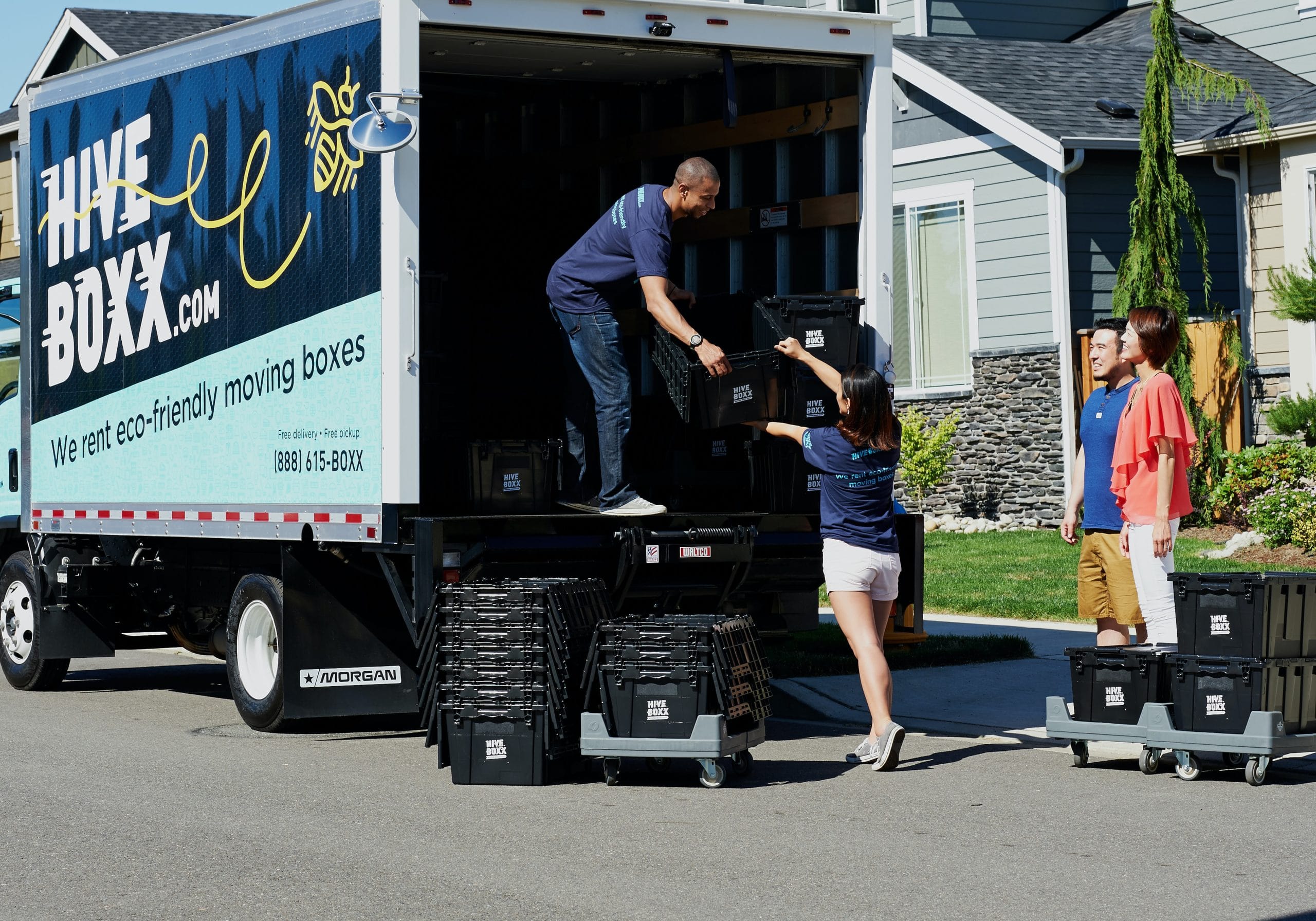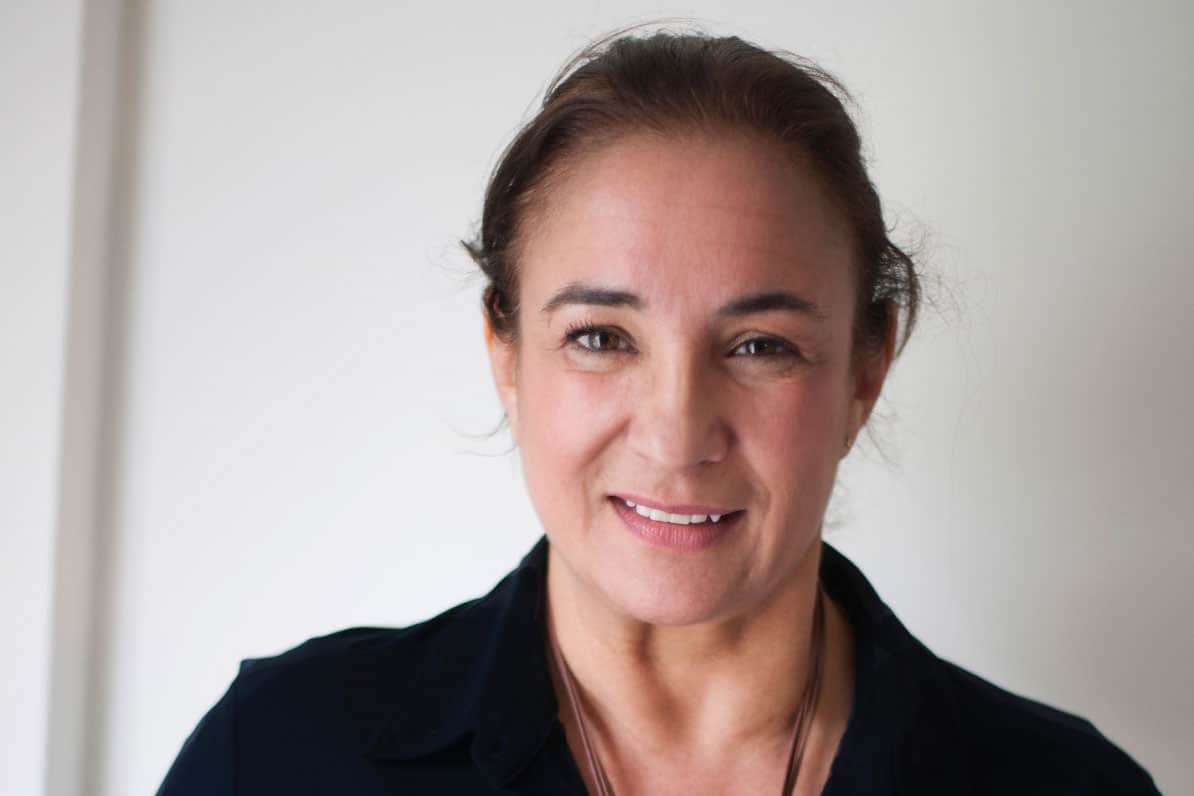Interview | René van der Velde, Financial Advisor
Monique Burgemeester has worked with a lot of associates in the real estate industry over the years, including René van der Velde. René is an experienced financial advisor with a demonstrated history of working in financial services. Two years ago he started together with Rob Wouters his own company (Wouters & Van der Velde). Preceded by his fantastic reputation, René is knowledgeable in an abundance of topics such as Mortgage and Financial Planning.
Recently, we decided to catch up with René to get his insights on the latest updates to this year’s transfer tax and how it may affect anyone looking to buy a house in the Netherlands.
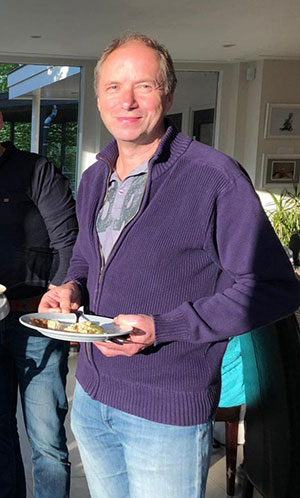
You have to pay 2% transfer tax over the purchase price. This year, it has changed and is now subject to the purpose of the property; this is to ensure the system is more attractive for first-time buyers.
What changed for first-time homebuyers from January 1st, 2021?
At the moment, those under 35, do not have to pay transfer tax at all. When you buy a buy-to-let house, you have to pay 8% transfer tax.
What will be the situation if you’re going to buy together and only one of us is younger than 35?
If you buy the property 50/50, you have to split the transfer tax into 0% and 2%. So, in fact you have to pay 1% transfer tax over the purchase price.
What will change on April 1st, 2021?
Yes, changes have been made to the exemptions heading into 2021. There will be a max purchase price of €400,000, and if you buy the property after 1st April you will have to pay the 2% transfer tax, regardless of your age.
If you want to sell your house after a certain period and you are lucky to make a profit, what taxes do you need to pay?
You don’t have to pay capital gain tax if you are selling your property
What will change for UK citizens who want to buy a property because of Brexit?
If someone from the UK would like to buy property in Holland, they must apply for a resident’s permit in 2021 - EU citizens have automatic access to this.
Looking to get in touch with René to discuss your own situation in buying a property? Contact rene@woutersenvandervelde.nl.
Planning for a stress-free move to the Netherlands
The prospect of moving abroad and starting a new life in the Netherlands should be an exciting one. But for many, this excitement is tempered by feelings of anxiety and uncertainty. There may be a million questions flying through your head: Are we making the right decision? _ What if the children don't enjoy school? What if we get homesick? Will we survive the Dutch winters? Or, worst of all, "I don't know how to cycle."
We spoke to Elizette Nel, of Expat Relocation & Immigration Services , to discuss the emotional ups and downs of relocating to a new country. As an educational psychologist and expat herself Elizette has a thorough understanding of both the practical and emotional strains that moving abroad can take - particularly for those with children.
In this blog post we cover Elizette's five areas to consider to manage stress when moving abroad.
1) Clarify your expectations
There are a multitude of reasons for moving to the Netherlands, as Elizette explains: “It could be a decision based on career, such as a new job or a promotion. Perhaps you want better opportunities for your children. Some people do it for love while others are looking to leave behind environments affected by violence and crime. ”
With all these different motivations, Elizette firmly believes that one should be honest with yourself and clarify your reason or reasons for taking such a bold step. When things become difficult, it is important to hold on to your personal motivations to carry you through. Also think about your expectations of the move. Are they realistic, or one-sided? Always try to find a balance between the positives and the negatives.
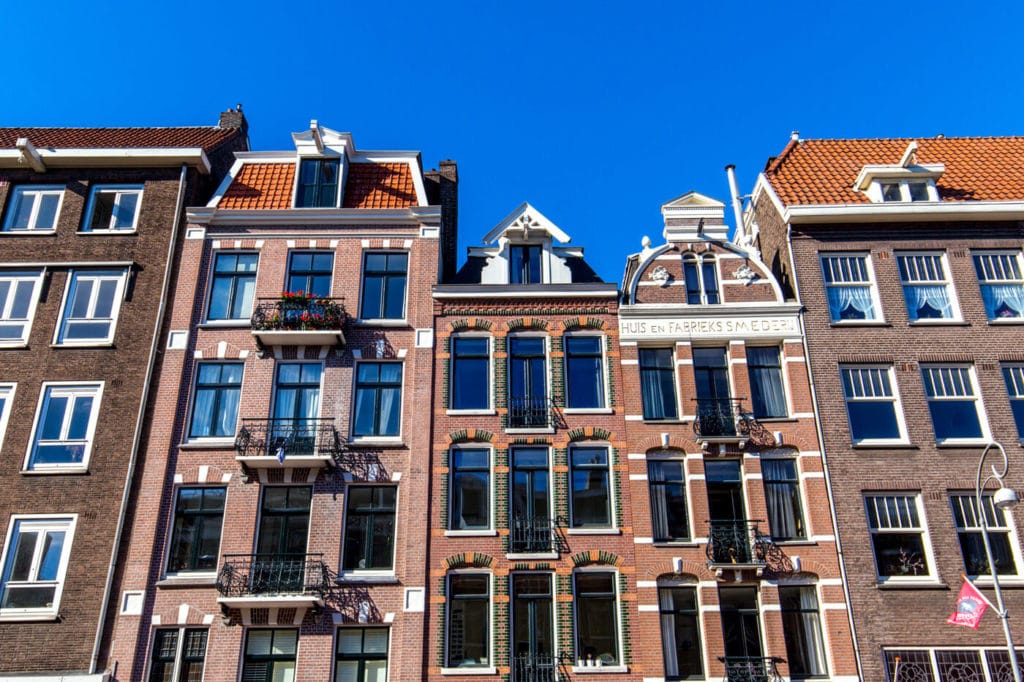
“Every move is different, and every person’s motivations are different. You can never compare your move or decisions to anyone else's. You need to choose what’s right for you, and other people can never criticize the decisions you make. That’s why asking yourself these personal questions about your motivations and expectations is such an important first step in your relocation journey.
2) Practical planning
There are numerous practical elements to moving abroad - and this can be quite intimidating. “Some people like lists, and others want to just go with the flow. But in a situation like this, a complex situation, it’s important that you spend time sitting down and deciding what needs to be done, and when.”
“There’s a real satisfaction from having a list of worries, and ticking them off. It helps to give you a sense of control during what can be a very scary and uncertain process.”
As Elizette points out, there are many elements you can take control of. Contacting the relocation company, speaking to the school, planning your furniture, etc. Elizette believes that it’s important to give yourself as much time as possible to prepare. But there is also one area that is commonly overlooked.
“The process of saying goodbye is often forgotten. You need to find closure with a chapter of your life. It’s important you spend time arranging events or calls with your friends and family. Furthermore, if you have children, you need to give them this same privilege. Give them the option of a party with their friends, or something more 1:1 - give them control in how they say goodbye.”
3) Moving with children
“Children in these situations can have a challenging time. They often lack control and transparency. But children, no matter what age, can detect stress and it can have a profound impact. Perhaps they see people crying, or items being packed. What’s more, children have the capacity to imagine a much worse outcome then is reality.”
Elizette believes that parents must consider how and when they are going to tell their children. “I think it’s unfair to ask children to keep a secret such as this from friends and family - this can create a tremendous pressure on them. They, like all of us, have a need to discuss the situation with others and start coming to terms with change. So try to tell them at a time when you have also informed those around you.”
Just like the task list mentioned above, similar approaches can be given to help children feel more in control of their future. “For smaller children, who often don’t have a very good concept of time, having a calendar that they can tick off is an excellent way to give them a better understanding of the approaching move.”

For older children, they can be more closely involved in logistics. “Involve them in the research for what school they will be going to, and how the Dutch school system differs from the one they are currently following.”
“Ultimately, it’s about finding a balance. Don’t pretend that it’s going to be a walk in the park, but give them things to look forward to - whether it’s cycling to school, not wearing school uniform, learning a new language or seeing snow for the first time. ”
4) Find the right home
When searching for a home Elizette says the most important thing to consider is your family’s lifestyle. “Do you enjoy walks in the park? Or going to the beach? These are all factors that need to be considered. While some people love the vibe and liveliness of the city, others need more freedom and large spaces.”
“Commuting is also an important element to consider. If you’re moving from London, then the prospect of a two hour commute seems fairly normal. But in the Netherlands, there is no need for this.. You’ve got the opportunity to reduce your commute drastically, and less time commuting means more time for things that add value to your life.
Elizette acknowledges that finding a property while still overseas is extremely difficult, but definitely not impossible. If you decided to rent first working with a rental broker means you can secure a property, in an area you desire, before you arrive. Not being under pressure to look for a house while settling into a new job and finding your feet in a new country is priceless. For those looking to buy it’s best to be there in-person.
“One final warning, regarding temporary accommodation. Most local town halls don’t allow you to register using a temporary address. As such you won’t be able to obtain a BSN number, bank account or many other elements that you would ideally have as soon as possible.”
5) Don’t be afraid to ask for help
“Relocating to a new country is a huge task, but the good news is that there's lots of support available for those who are happy to ask for it. Social media forums like Facebook can be very supportive and informative. And people are generally very generous with their advice and offers for help. Often, friendships are forged even before you arrive in the Netherlands.

“Some people feel in control if they can manage their relocation themselves, but they need advice or support with a few specific tasks. Others want someone to take the pressure and stress out of their hands and manage the relocation on their behalf. Services such as Expat Relocation & Immigration Services can offer valuable assistance and support. . I can step in, provide support, and help you stay on track. In my view, if you're going to work with a relocation consultant, it's important that they not only offer practical support, but also understand your emotional needs and offer just the right mix of information, support, reassurance and assistance.
Expat Relocations is a member of our Expat Orientated Organization certification, meaning that they have proved themselves as a business capable and ready to assist expats and their needs.
Is it a good time to buy a house?
Good time to buy a house? We have heard this question and others over and over again, so we’ve made an overview of frequently asked questions and has asked an expat-expert to answer all! We kick off with Barry Burgemeester of Burgemeester Vastgoed.
Everyone can become a real estate agent. There is no diploma or certificate required to get started in this line of work. However, Barry has the proper certification and has been in the business for 23 years. The past 17 years he specialized in assisting expats with buying homes and commercial real estate. There’s a lot of misinformation out there about what real estate agents actually do, so he’d published recently an article “A typical day in the life of an Amsterdam Real Estate Agent“. Let’s see if is it a good time to buy a house!
Aren’t we in a property bubble in Amsterdam? Shouldn’t I just wait?
The only answer to this is that unless you’re planning to speculate on the Dutch property market and sell your home within say 6 to 8 months, then it’s always worth buying. With tax rebates and low-interest rates, you’ll usually end up paying less money on a mortgage than you do rent. It’s always a good time to buy and I’m here to help you find the right place in Amsterdam that meets your needs.
What is the real challenge in the process of buying a house?
In this market, the search for just the right home is important, and we can help you with that. Once a client has set his/her sights on a desirable house, then the real challenge starts the bidding process and the presentation of our client to the selling party. A real estate agent should advise his client on what is and is not possible. Where previously it was often about having the highest bid, now the buyer is also under scrutiny, because the selling party benefits from a customer who can also pay for the property. We can help you make the right bid, safely and freely, and within the possibilities, ensuring the highest chance of success.
So, what should I do first?
The first thing you need to know if you want to buy a house is how much money you can borrow. The market is so hot, that if you find a house you like, you must be ready to act straight away. Remember, you will need more than the actual price of the property. You can borrow up to 100% of the value of the property, so you will need your own cash – about 6% to 8% of the purchase price – to cover the bills for taxes, the estate agent and notary fees and other matters. There are a lot of different banks and institutions providing mortgages in the Netherlands so it makes sense to talk to a mortgage expert first.
My offer on a house has been accepted, what happens now?
Once your offer for a house has been accepted, you have to sign a contract. So you, your estate agent, the seller and their agent will meet at a notary’s office to sign the voorlopig koopcontract – the purchase and sale agreement. The notary is a type of lawyer, and the contract gives you three days to change your mind. The contract also includes a clause saying the transaction is ‘subject to financing’.That gives you a period of time to arrange your mortgage. This is usually four weeks. It might sound like a long time, but there is a lot of paperwork to go through. Once all that is done, you go to the notary again and sign the final deal.
We like to thank Barry very much for his clear answers and will be back next week with another expat expert answering questions! We invited Marielle Groen of Advocura to answer the questions you have asked about legal issues in The Netherlands.
Be sure and check out our Facebook community, How to Buy a House in the Netherlands. This group was specially created to provide support and assistance for homebuyers during every step of the process, from just thinking about buying a home to making the final offer. Ask us all your questions via monique@howtobuya.house and we will get back to you!
Questions and answers | Real Estate
Our How to Buy a House event is not a seminar but is an open format event where real estate agents, mortgage advisors, notaries, builders, interior decorators, and other professionals are standing by to answer attendees’ questions one-on-one. For you, we collected some questions and answers we have had from our visitors about real estate.
*The outbreak of coronavirus is affecting everyone across the Netherlands and far beyond. We all have a role to play in preventing its spread. We postponed our next housing event until September 16th in Amsterdam. Any new information or developments are always incorporated into the advisory reports that RIVM provides to the Cabinet, so our government leaders can decide whether to ease current restrictions or implement stricter measures. Of course, we will follow all rules and regulations and also use our own common sense to keep everyone safe. We will keep you posted via our social media channels and website*
I want to buy a house, what should I do first?
The first thing you need to know if you want to buy a house is how much money you can borrow. The market is so hot, that if you find a house you like, you must be ready to act straight away. Remember, you will need more than the actual price of the property. You can borrow up to 100% of the value of the property, so you will need your own cash – about 6% to 8% of the purchase price – to cover the bills for taxes, the estate agent and notary fees and other matters.
Do I need to team up with a real estate agent to get a house?
No that is not mandatory, however, we strongly advise you to do so. Finding a house is one thing, actually signing the contract is another. If you have found a house you like, make sure you have a real estate agent with you to carry out the negotiations with the seller. An expert will make sure your offer is based on the market value of the property, not the asking price. An expert will also look into other tricky subjects, like making sure the homeowners’ association – if you are buying an apartment - is healthy and making sure there are no hidden problems with the property. Your estate agent is there to help you and make sure your requirements are met.
Do you need to have a diploma to be called a real estate agent?
Everyone can become a real estate agent. There is no diploma or certificate required to get started in this line of work. You can decide to be an estate agent overnight.
Is an agent who is not a member of a real estate trade body trustworthy?
In the Netherlands membership of a real estate trade body is entirely optional, so not all good agents want to be a member of a trade body. That does not mean they are not qualified to help you find your house. Don't choose a real estate agent just based on the fact that they belong to an association.
We do think it is good to ask for a real estate diploma/certification, so you know the basic knowledge is there. Also, take a good look at reviews, ask for contracts translations in English, terms and conditions in English, see if there are no woolly clauses and most important; finding a house is a team effort, so your agent and you must team up. If it doesn't feel good then get out of the team.
What's the catch about bidding? Shall I just make an overbid on a feeling?
No. A real estate agent should advise his client on what is and is not possible. Where previously it was often about having the highest bid, now the buyer is also under scrutiny, because the selling party benefits from a customer who can also pay for the property. A great agent can help you make the right bid, safely and freely, and within the possibilities, ensuring the highest chance of success.
What happens if my offer is accepted, am I safe then?
Once your offer for a house has been accepted, you have to sign a contract. So you, your estate agent, the seller and their agent will meet at a notary’s office to sign the purchase and sales agreement, in Dutch; "voorlopig koopcontract". Until this event happens it is only a gentlemen's agreement.
Is it possible to determine the "voorlopig koopcontract" if I change my mind?
The contract gives you three days cooling off period to change your mind, so you can terminate the contract without any questions during these 3 days. Without being too Dutch and blunt; it is, however, better to have a good think about the property before signing the contract. All parties need to do a lot of work before signing the contract, so if you are not sure about buying a house, then don't. The contract also includes a clause saying the transaction is ‘subject to financing’.That gives you a period of time to arrange your mortgage.
Why do I need a notary?
The notary is a type of lawyer who specialises in civil contracts. You will visit the notary to sign the "Voorlopig koopcontract". In some cities that part can also be done at the seller's office, but in Amsterdam, you need to visit the notary to do so. Dutch law states that signing over the house in your name must be done by a notary. So you will have to visit the notary multiple times, also to sign the "akte van levering" – the deed of transfer and (if you need a loan) the mortgage papers. If you do not speak Dutch, a sworn translator will also be needed. Once the "akte van levering" has been signed, you will get the keys and your dream home will be yours. The notary will register the property in your name at the land register.
What is the difference between "erfpacht", which means leasehold and "eigen grond" or freehold properties?
Amsterdam homes often have erfpacht – which means you buy the bricks but you rent the land your home is built on, usually from the city council. It is quite common and nothing to be afraid of. If you buy a home with erfpacht, the information about the house will tell you that the erfpacht – the leasehold – often have been paid until a certain date. When that period ends, you will have to pay for a new contract. The bill is based on the value of the land at the time. Make sure to have a good chat about leasehold with your real estate agent to understand what the new regulations are and to understand the concept.
"Do not wait to buy real estate, buy real estate and wait"
Is this the right time to buy a house, aren't we in a property bubble?
The only answer to this is that unless you’re planning to speculate on the Dutch property market and sell your home within say 6 to 8 months, then it’s always worth buying.
Be sure and check out our Facebook community and be a member of How to buy a House in the Netherlands. This group was specially created to provide support and assistance for home buyers during every step of the process, from just thinking about buying a home to making the final offer. Ask questions online or via email and get your answers.
Expat Oriented Organisation
Visit the Expat Oriented Register. The registry is free and intended solely as a service to our expat community.
We do not charge any company for being on it and are not seeking agreements for compensation. What we do want is a good and reliable business guide that expats may use to safely find their way to freelancers and companies with suitable business ethics. In 2020 we will ask for a handling fee of € 70,00 ex VAT to list the company online.
See you at the next event!
Why do you need a notary in Amsterdam?
Why you need a notary in Amsterdam
In this article, we will explain the need of a notary in Amsterdam. Realizing your dreams of owning your own home is satisfying, but the purchase of buying a house is an important decision in life, but becoming the owner is not that simple.
In Amsterdam, it is customary for the notary to draw up the purchase agreement after which it is signed by both parties at the notary’s office. Subsequently, the notary takes care of the implementation of the stipulated agreements as laid down in the agreement. The notary records this in a deed of delivery.
Only after signing the deed at the notary’s office and registering the deed in the public registers of the Land Registry, you are the owner of the new house! If you take out a loan for the purchase, a mortgage deed will usually also be required.
The mortgage deed gives the lender (usually a bank) the certainty that you meet all your contractual obligations. A mortgage deed is often required when you already own a house but want to borrow extra money. The mortgage deed will also be registered in the public registers of the Land Registry after it has been signed at the notary’s office.
In most cases, the buyer determines which notary is involved in the transfer. Whether or not a broker is involved in the transfer, you can always contact the notary directly for advice or consultation about other matters such as family law.
NOTE: all the money involved in a housing transaction travels via the escrow account of the notary, no third parties are involved.
Do you have any questions about a notary in Amsterdam? Ask our Experts.
Questions About the bidding proces? Ask Monique Burgemeester
About bidding for a property in the Netherlands
The bidding process for a property is relatively easy if you use a real estate agent. He or she can help you to place a good bid, based on the market value and not on the asking price. It is not done to bid on more than one house at the same time.
If you place a bid and your bid is accepted, the seller (or the seller's agent) will usually negotiate exclusively with you. If your bid is not what the seller expected he or she will decline the bid and you are free to make another bid. The seller can accept other bids if your bid is declined.
Bidding for a property the process
In this overheated market, the seller often arranges for a tender. That means that all interested buyers have one change to present their best bid before a certain closing time. After that closing time, the seller will pick the best and will proceed with the buyer who has won the tender. Bidding is not only about the price. The preconditions are also important for a seller. Flexibility, % percentage of restrictions on finance and also knowing you actually can pay for the house are things sellers will be happy with.
Your bid has succeeded
If you won the bid: HURRAH!!!, but not too loud. A verbal agreement or email confirmation is not binding for the seller and buyer. It is a gentlemen’s agreement and in The Netherlands, it is common to shake hands and stick with it, but … only a signed purchase agreement is legally binding. So, make sure you will sign the purchase agreement asap and keep your fingers crossed!
After signing a purchase agreement the seller has to keep his or her fingers crossed because the buyer has a 3 working days consideration time. We call that a cooling off period or in Dutch: “3 dagen bedenktijd”. During that period the buyer may cancel the agreement without any reasons or costs.
WARNING: Do not bid without restrictions of finance if you cannot afford it. If you need more information, please feel free to send us an email
At How To Buy A House we regularly hold events in the Netherlands for expats who are thinking about buying a home in the Netherlands. Check out our home page for the event's agenda.
We also have an active Facebook community group where you can ask any questions you may have about buying a home in the Netherlands. Feel free to join our Facebook group.

